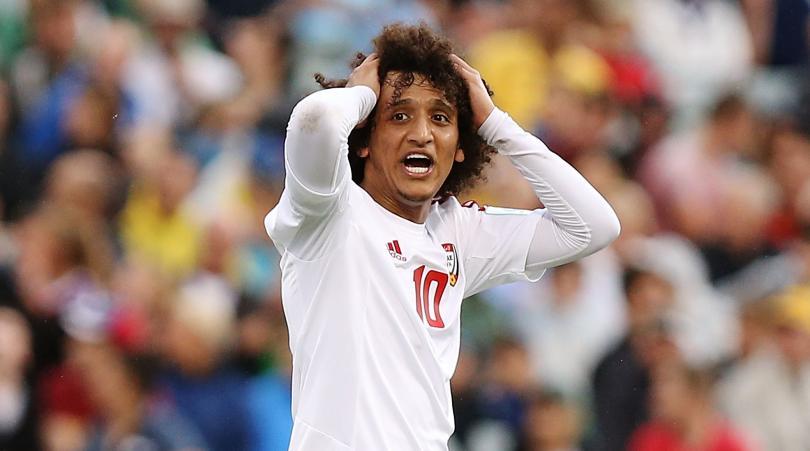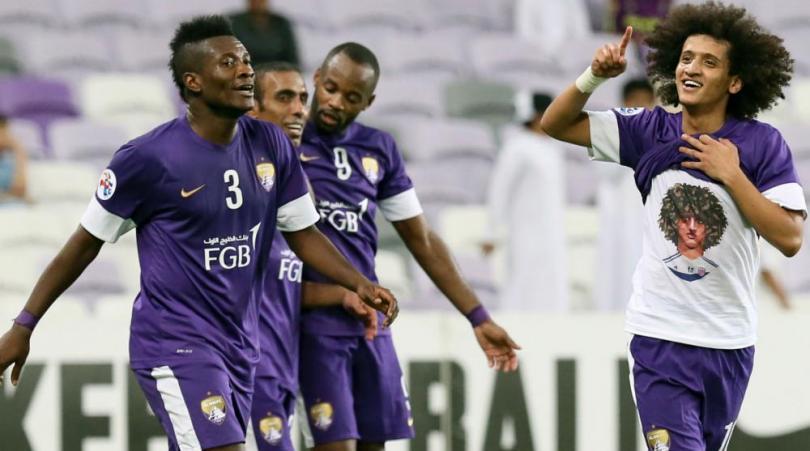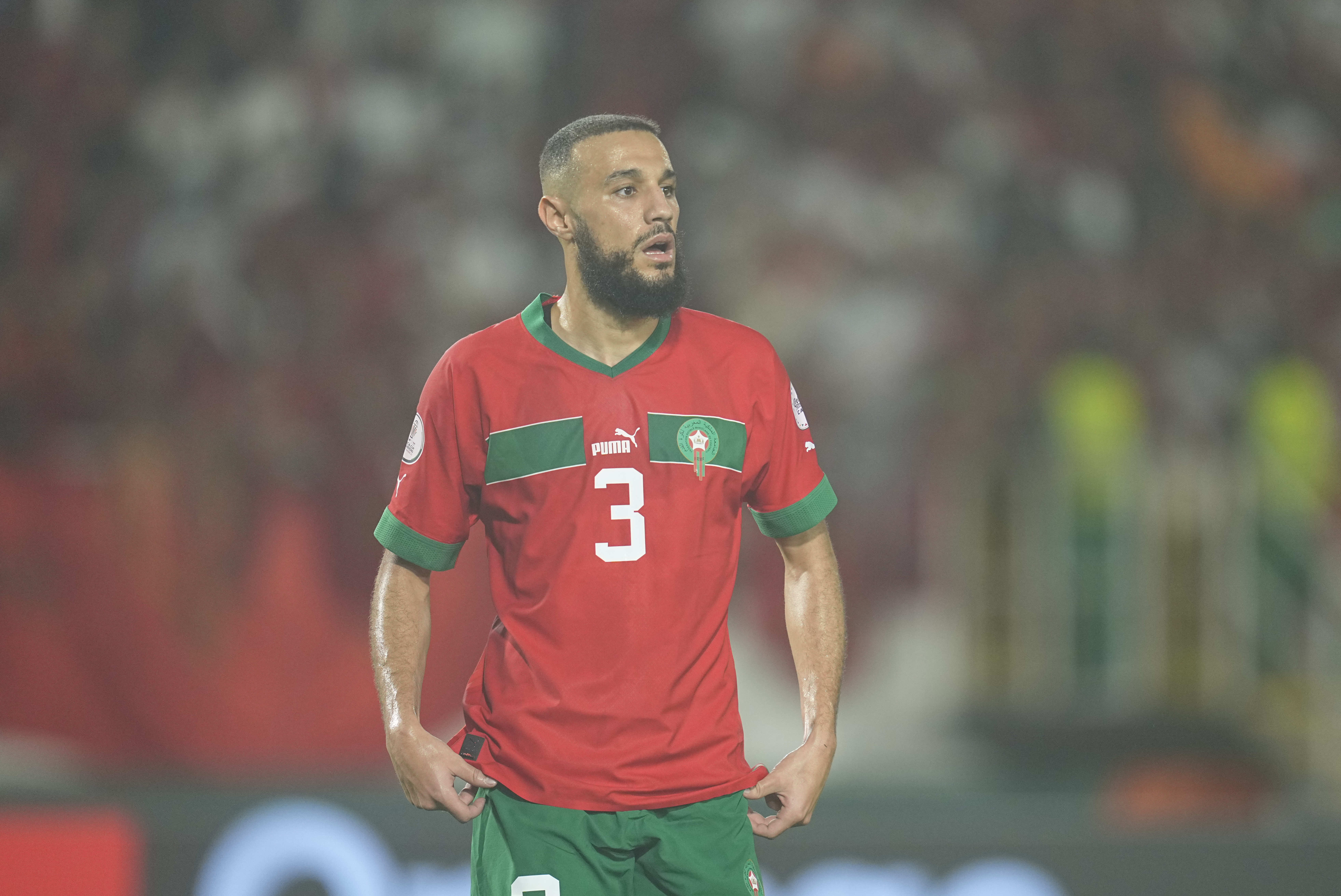Why Omar Abdulrahman is the UAE's homespun magician
John Duerden believes that Omar Abdulrahman's rise to brilliance means Asia can rightly feel proud of nurturing one of the world's most exciting playmakers purely on local shores...

The four pace-setters in FourFourTwo's 50 Best Asian Players list have validated the pedigree of their talents in the World Cup, top European leagues and in some cases the UEFA Champions League. The same cannot be said of Number Five. Yet no-one would deny the truly special talents of Omar Abdulrahman.
The 2015 Asian Cup in January provided further evidence that he is one of Asia’s top five players. I attended his first game of the tournament in Canberra. In the pre-match press conference ahead of that vital clash with Qatar, the first question to UAE coach Mahdi Ali was not about his target for the tournament, but about the condition and fitness of their 23 year-old starlet. Australian and visiting media alike had come to see Abdulrahman.
He didn't disappoint either. In what was billed as the battle of playmakers against Khalfan Ibrahim, Omar ('Amoory' to his friends) was majestic. Khalfan Ibrahim drew first blood with a fine goal midway through the first half, lobbing the UAE goalkeeper. However, it would be his bushy-haired opposite number which would run the game from there.
Within seconds of kick off, the Al Ain man dispossessed an opponent and floated a delightful pass into the Qatari area for Ali Mabkhout to shoot just wide. All game he pushed, probed and created opportunities for team-mates as the Whites picked up an impressive 4-1 win over what had been Asia's form team.

UAE returned to Canberra for their next game. Heading through security checks, staff were already excited to see Abdulrahman in action again. “I don't know much about soccer,” said one. “But even I can see this guy is something special.” Once again, he glided around the Canberra surface as the UAE made it two out of two against Bahrain to seal a place in the knockout stage with a game to spare. He made it all look so easy.
“Football was my hobby from a young age,” he said. “I always wished to be a footballer. I'd play with all my brothers but it was Ahmed and my dad who took care of me, gave me more attention and helped develop my talent. In fact, my whole family have been supportive. They've been the greatest influence on my career. I believe I've reached this level because of their prayers and the effort I put in.”
As a young kid in the Saudi capital, he attracted interest from local giants Al Hilal before heading to UAE with his family. He then signed for Al Ain, one of the country's leading clubs, Asian champion in 2003 and finalist two years later. He rose through the ranks at both club and country level and turned heads at the 2012 Olympics with a standout performance against Uruguay at Old Trafford. That earned a trial for Manchester City and a four-year deal that was, reportedly, quashed by UK work permit laws.
The best features, fun and footballing quizzes, straight to your inbox every week.
The links with big European clubs have never ceased though and neither has the blossoming of his talents. He was the MVP as the UAE won the 2013 Gulf Cup in Bahrain — West Asia's biennial bash. The golden generation of Mabkhout, Ahmad Khalil and Khamis Esmaeel and others, were starting to shine but Abdulrahman was the crown jewel.
“People have given us this name [the golden generation] because in every championship, we always honour the country and its people and we feel like we can keep winning things. Why not? We keep this same spirit as a team. It is not about names but teamwork. That's what makes this generation special,” said Abdulrahman.

While winning the Gulf Cup was rewarding, but the time had come for the country and its star player to shine on a bigger stage. The Asian Cup was the perfect opportunity. Despite the good start against Qatar and Bahrain, a quarter-final with defending champions Japan, collector of maximum points in the group stage and looking to make it five titles in seven tournaments, looked to be the end of the road.
Coach Ali and his merry men could not ask for a tougher examination. Yet, after 120 minutes when scores were locked at 1-1, the West Asian team triumphed in the penalty shootout with the man in question holding his nerve with a delightful panenka in the biggest game of his life. To the disbelief of Asian giants Japan, UAE were suddenly in the last four.
A semi-final with hosts and eventual champions Australia was a game too far and ended in defeat but the tournament ended with UAE taking third. Had they actually won, there is little doubt Abdulrahman would have been crowned player of the tournament.
An even bigger stage surely awaits. “I'm ready for it. Ready to show that Emiratis can play in the top leagues, to do my country and its shiekhs proud,” he said.
If such a move materialises, there will be no stopping Omar Abdulrahman’s rise — both as a player and in next year's FourFourTwo list.
Debate the #FFTASIA50
The FourFourTwo Asia50 is in association with Samsung SportsFlow – bringing you the most comprehensive sports coverage in one place via a single app. Find out more and download at www.sportsflow.me
John Duerden has covered Asian sport for over 20 years for The Guardian, Associated Press, ESPN, BBC, New York Times, as well as various Asian media. He is also the author of four books, including Rovers Revolution: Blackburn's Rise from Nowhere to Premier League Champions and Lions and Tigers: The Story of Football in Singapore and Malaysia.
